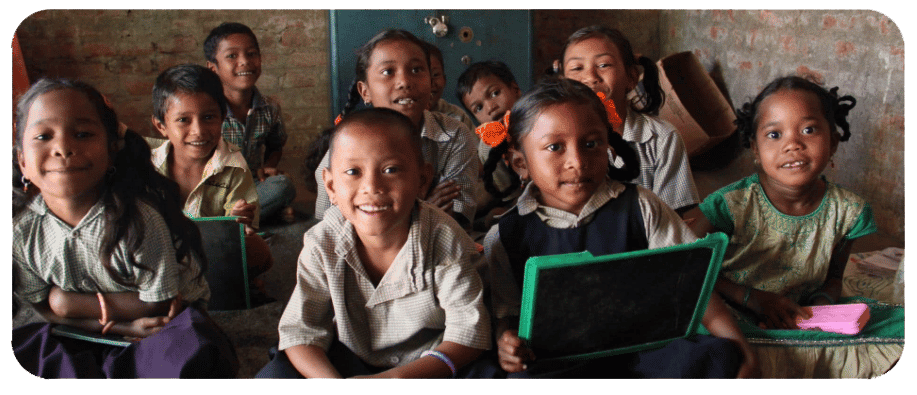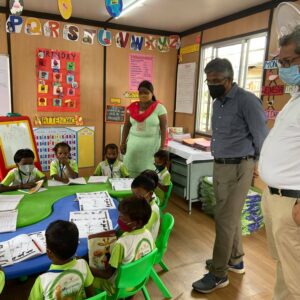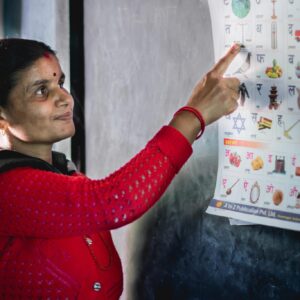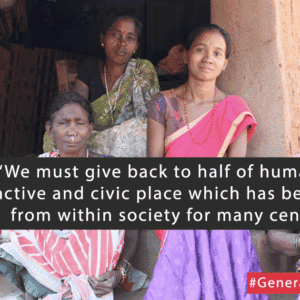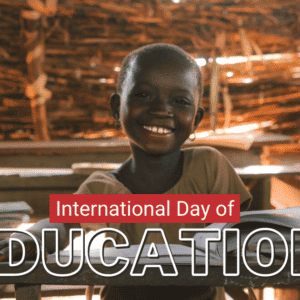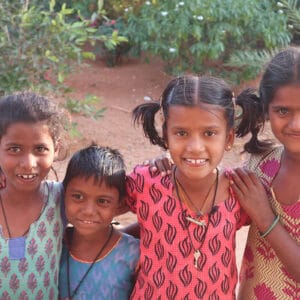Chennai, 24 January 2020. On the occasion of the 2nd edition of the International Day of Education, Aide et Action, an international association for development through education, renews and reaffirms its Mission statement: “to act so that the most vulnerable and marginalized populations, especially children, have access to quality education and therefore they may master their own development and contribute to a more peaceful and sustainable world.”
If the creation, at the end of 2018, by the General Assembly of the United Nations, of the International Day of Education finally emphasizes the capital role played by education in human development, the fight against inequalities and for the future of the planet, it is clear that this cause was, until recently, the big forgotten item on political agendas. The UNESCO recalls that education is “a fundamental human right, a public good, the best renewable resource of humanity and especially the motor allowing to reach the Sustainable Development Goals by 2030”; these goals were adopted in 2015 by 193 heads of state in order to build a fairer and more sustainable world. However, it is clear that if leaders dedicate beautiful words to it, only a tiny part of their development aid is devoted to education. If, since 2018, this trend has tended to reverse, the urgency remains because there are only 10 years left and there is still a shortfall of nearly $39 billion per year to provide access to education for all, and in particular to 258 million children, adolescents and young people who are still deprived of education these days.
As part of its five-year strategic plan (2020-2024), aware of these crucial challenges, and faced with current global challenges, Aide et Action, renews and reaffirms its Mission. Created 37 years ago to ensure education for all, and in particular children in primary education, the association has decided to focus its action on those whose human rights, and more particularly the right to education, are the most flouted today.
“Aide et Action will support the most vulnerable and marginalized populations in their access to life-long quality education – from preschool to socio-professional training, including primary and secondary education – in the sole objective of offering everyone the same opportunities to take their development in their own hands. At the same time, Aide et Action will support these populations on the path to citizenship so that they too may contribute to social change, both local, national and international. Our areas of intervention will take into account the challenges that the world must face today: climate change, security, peace, migration … We will act, worldwide, on all obstacles to education, so that vulnerable and marginalized people can master their own development and contribute to a more peaceful and sustainable world,” sums up Charles-Emmanuel BALLANGER, General Manager of Aide et Action.
For any further information and / or request for an interview, please contact:
Chandra Kiran Katta, Manager – Communication, AEAI South Asia, Plot No. 24, Polisetty Enclave, Behind Ghanshyam Supermarket, Vikrampuri Colony, Karkhana, Secunderabad- 500009. Telangana. [email protected] ; 9440801758
Convinced that without education, no economic, social, sanitary or political progress is possible, Aide et Action, an organization for development through education, has contributed to improve access to and quality of education for millions of children and adults for nearly 40 years. Aide et Action is a recognized association of public utility, approved by the Ministry of National Education, and free from any political and/or religious ties. Our commitment and our actions are based on the values of freedom, respect, solidarity, equity and integrity. Aide et Action works in close cooperation with stakeholders, populations, associations, governments and local authorities. Aide et Action is currently carrying out 74 projects in 19 countries in Africa, South and Southeast Asia and in France – Europe. In 2018, we thus helped 1.2 million children, young people and adults to benefit from quality education or new professional skills.
aea-southasia.org


